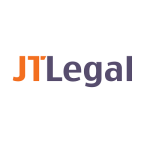With a small land area and limited natural resources, Singapore's economic focus has always been on its human capital – one of the resources that is easiest to change. As the surrounding region and the rest of the world develops, Singapore has had to find ways to stay increasingly relevant, competitive, and ahead of the curve.
Singapore ranked 2nd in the 2021 Bloomberg Innovation Index and 1st in the IMD World Competitiveness Ranking 2020, and in a Singapore Exchange Limited report last year, Singapore was said to be the 'ASEAN capital of fintech', with more than 750 financial technology (fintech) companies based in Singapore.
However, this is no miracle – the Singapore government has put various measures in place to grow and groom talent in Singapore. In relation to fintech specifically, some government initiatives include:
Fintech innovation lab;
Financial sector technology and innovation proof of concept scheme; and
Fintech regulatory sandbox.
Other than implementing initiatives to encourage the use and development of fintech by start-ups in Singapore, the government has also shown interest in developing fintech for institutional use.
In 2016, the Monetary Authority of Singapore (MAS) embarked upon a five-year collaborative project with industry players to explore and understand the benefits of blockchain and distributed ledger technology for clearing and settlement of payments and securities through practical experimentation. Industry collaborators ranged from established financial institutions to technology companies like R3, a distributed ledger technology company, and IBM.
While state interest is not strictly necessary for the development of technology, the government's fairly active role in exploring and encouraging the implementation of fintech in Singapore has helped the legislative and regulatory framework in Singapore stay updated with innovation.
This groundwork laid by the government proffers added clarity and certainty, so that businesses may more confidently deploy and/or develop fintech. The various regulations, such as the necessity to be licensed for certain activities, also provides businesses who are keen to adopt fintech solutions with the peace of mind that there is government oversight, and fintech providers cannot abuse the technology to exploit the less well-informed.
With Singapore ranking 2nd in the World Digital Competitiveness Ranking, and 40% of all fintech companies in Southeast Asia calling Singapore home, it is clear that Singapore has established itself as one of the leading fintech hubs in the region.
Despite this, Singapore's technology adoption was rated 1.96 out of a possible 3 in Cisco's 2019 Digital Readiness Index – while there may be many fintech companies in Singapore, many companies may not yet be aware of how to leverage fintech to work smarter.
Types of fintech and notable companies
As the fintech industry matures, the types of technology encompassed by the term have grown to include:
Payment services;
Peer-to-peer lending; and
Data collection, management and storage.
Some notable companies in Singapore's fintech space include 'decacorn' Grab, Zilliqa Research and Validus.
Payment services
In 2021, MC Payment Limited became the first digital payment services company to be listed in Singapore. It is among the ten companies with a major payment institution licence to conduct merchant acquisition services.
Digital payments became an oft-mentioned topic in the year 2020 for several reasons. One of the more practical reasons was that it provided a mode of contactless payment to reduce person-to-person contact, a relevant concern amid the outbreak of the extremely infectious Covid-19.
With businesses increasing their online presence, especially in the wake of Covid-19, payment services allow businesses to generate revenue from a larger pool of consumers – where cross-border money transfer is allowed, businesses can even expand through their online business, without incurring the costs of traditional geographic expansion through brick and mortar locations.
Another reason for the buzz was that at the start of 2020, the Payment Services Act 2019 (No. 2 of 2019) took effect, and many companies were consequently taking steps to comply with the updated legislation and to submit licence applications as prior to the Payment Services Act 2019, there was no consolidated act governing payment services on a whole.
|
|
“Singapore has had to find ways to stay increasingly relevant, competitive, and ahead of the curve.” |
|
|
New activities such as digital payment token (DPT) services and merchant acquisition services that were not regulated under previous legislation related to payment services were brought under the purview of the Payment Services Act.
Entities hoping to be granted a licence should, among other things, ensure that they have adequate anti-money laundering and know-your-client procedures in place; payment services that facilitate the movement of money, especially across borders, may be exploited for illicit purposes such as money laundering or the financing of terrorism. In particular, the use of virtual assets like cryptocurrency favours anonymity and are even more liable to being abused.
In early 2021, Singapore amended the Payment Services Act 2019 to introduce enhanced anti-money laundering measures for companies offering DPT services. The requirements which are to be complied with are extensively set out in MAS Notices including MAS Notice PSN01 (for payment services other than DPT services) and MAS Notice PSN02 (for DPT services). MAS has also issued accompanying guidelines to these notices.
Moreover, licence-hopefuls should also note that their corporate structure may come under scrutiny. Where the licence applicant is a Singapore-incorporated company or a Singapore branch of a foreign-incorporated company, there should be (a) at least one executive director who is a Singapore citizen or permanent resident; or (b) at least one executive director who is a Singapore Employment Pass holder and at least one other director who is a Singapore citizen or permanent resident.
Companies who wish to integrate payment services with their current business processes should ensure that they use the products or services of licensed entities, as such licensed entities' internal procedures would have passed muster. Other than anti-money laundering procedures, a licensed entity should also, as far as possible implement the measures set out in MAS' technology risk management guidelines and requirements from time to time. For example, a recovery time objective of not more than four hours must be established for each critical system.
Peer-to-peer lending
Other than traditional fundraising rounds, companies now can utilise crowdfunding to raise money. Some platforms even allow for securities-based crowdfunding. This is made easier with technology facilitating the flow of money, including peer-to-peer lending. With peer-to-peer lending, companies may have greater access to funds at competitive interest rates, and may be more willing to take on debt on their balance sheets.
Start-ups who make use of such lending-based crowdfunding platforms should ensure that their offers made to investors do not trigger prospectus requirements. The triggering of prospectus requirements may cause undue disruption in a start-up's operations – unnecessary attention from regulatory authorities may be received where a company unknowingly makes an offering without a prospectus despite being required to do so under legislation.
Further, there may be operational issues arising from a miscalculation of cashflow; to avoid regulation at the last minute, companies may have to adjust the amount raised and the number of investors involved so that the company need not issue a prospectus.
Prospectus exemptions include, subject to additional conditions being met:
The small offer exemption, where offerors may make personal offers, up to an aggregate of SG$5 million (approximately US$3.7 million) in a rolling 12-month period;
The private placement exemption, where a company may make an offer to no more than 50 persons in a rolling 12-month period; and
Offers to institutional or accredited investors.
Fintech start-ups wishing to offer such peer-to-peer crowdfunding solutions should also ensure that they obtain the relevant licence(s). As a peer-to-peer lending platform operator is facilitating the offer of debentures, it may be considered to be carrying on the business of "dealing in capital market products", a regulated activity under the Securities and Futures Act (Cap 289, 2006 Rev Ed) of Singapore.
As such, a peer-to-peer lending platform operator may have to apply for a capital markets services licence. Where the platform also provides parties with financial advice, it may also have to obtain a financial advisor's licence or a capital markets licence for the provision advising on corporate finance. Under MAS Circular No. CMI 27/2018, MAS has also imposed certain disclosure obligations on licensed platform operators including:
The interest rate per annum;
The interest rate per annum net of all fees and charges that the investors will receive;
For loans disbursed in each of the past three calendar years:
The lowest and highest expected rates of returns, net of fees and charges to investors; and
The weighted average expected rate of returns, net of fees and charges to investors;
Non-performing loan rates.
Obtaining a licence from Singapore's regulatory authorities, while time-consuming, may also be a good investment by a fintech start-up. Singapore's regulatory authorities are renowned for their stringent oversight, and a Singapore licence will be a testament to the quality of a company and its products and/or services.
To this end, companies who wish to raise money through such platforms may also want to ensure that the platform is licensed and trustworthy. In the event that the platform does not safeguard investors' interests enough, a company's name may be permanently tarnished by such bad publicity.
Data collection, management and storage
Insofar as personal data is collected, used or disclosed in Singapore, the Personal Data Protection Act (No. 26 of 2012) (PDPA) will apply.
The PDPA will apply even if a company does not have physical presence in Singapore. As such, fintech companies who collect personal data from individuals in Singapore will have to comply with the PDPA. Under the PDPA, 'personal data' is defined as "data, whether true or not, about an individual who can be identified (a) from that data; or (b) from that data and other information to which the organisation has or is likely to have access".
Such personal data may include data collected and used for biometric verification; as increasingly sensitive processes are being moved online, fintech companies may use biometrics to control access to confidential or sensitive information. For example, DBS recently introduced facial recognition as a means of authenticating and verifying information for small and medium-sized enterprises (SMEs)setting up a corporate online account with DBS.
Another type of fintech which may involve personal data is capitalisation table and employee share option plan management services. Such a data management service can help companies to keep track of the shareholding in their company more easily and with greater accuracy, especially as the company goes through multiple investment rounds and employee share options are issued and exercised from time to time. This may make it easier to account to investors, and provides convenient visibility of a company's shareholding. For start-up founders, this may also help them to best strategise how to maintain specific proportions of shareholding so that control of the company does not change easily.
For companies collecting the personal data of investors and employees, their PDPA obligations will not change if they had collected such personal data prior to the deployment of the management technology.
While it is clear that fintech is still evolving, the changes it has brought in its years of existence have already altered how we live and how companies operate. To incentivise and support fintech and its adoption in Singapore, Singapore's government has introduced several initiatives, including the SG$125 million Covid-19 support package for fintech companies, the SG$150 million Startup SG Founder scheme for innovative startups and the Technology Adoption Programme, aimed at supporting businesses in adopting new technologies that have been identified and translated into Ready-to-Go solutions to retain their business competitiveness.
"The only constant in life is change" – Heraclitus.
Settling into a familiar way of operations is easy, but for fintech companies and companies who are able to utilise fintech, where the playing field is ever-changing, it is paramount to be open to change lest they stagnate, for stagnation is death.
Click here to read all the chapters from the 6th IFLR Asia Fintech Special Focus

Joshua Tan Heok Ping
Managing director
JT Legal
T: +65 6809 5144
Joshua Tan Heok Ping is the managing director of JT Legal. He is well-regarded for his expertise in corporate matters such as mergers & acquisitions (M&A), trade sales, corporate restructuring and rescue and a variety of fund-raising exercises relating to start-ups (from seed funding to series D), SMEs, multinational corporations or listed companies.
Joshua has also given advice and assisted in application to the MAS for licenses relating to the Payment Services Act and the Securities and Futures Act. Apart from corporate and regulatory matters, he is also well sought after as a commercially savvy negotiator in alternate dispute resolution matters involving settlement of commercial disputes.
He is also actively involved in the start-up scene in Singapore, and can often be seen attending events at start-up bootcamps, incubators and accelerators in Singapore.

Mary-Lisa Chua
Associate
JT Legal
T: +65 6809 5146
Mary-Lisa Chua is an associate at JT Legal where she focuses on corporate matters.
Mary-Lisa's particular expertise is in corporate and commercial, start-up and fintech, trusts, asset and wealth management, private equity and investment funds.
Mary-Lisa has a bachelor's degree in law from Singapore Management University. After finishing her training contract at JT Legal, she was called to the bar in 2020.

Lim Wei Jie
Associate
JT Legal
T: +65 6809 5144
Lim Wei Jie is an associate at JT Legal where he started as a practice trainee in January 2019.
Wei Jie practices corporate and commercial law on behalf of his clients advising on various corporate and dispute matters.
Wei Jie has a bachelor's degree in law from the National University of Singapore in 2018. He was called to the Singapore Bar in 2019.




